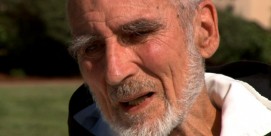In This Episode << SLIDE LEFT TO SEE ADDITIONAL SEGMENTS
Practicing Meditation
Read excerpts from “Real Happiness: The Power of Meditation” by meditation teacher Sharon Salzberg (Workman Publishing, 2011):

“My experience is what I agree to attend to,” the pioneering psychologist Williams James wrote at the turn of the twentieth century. “Only those items I notice shape my mind.” At its most basic level, attention—what we allow ourselves to notice—literally determines how we experience and navigate the world. The ability to summon and sustain attention is what allows us to job hunt, juggle, learn math, make pancakes, aim a cue and pocket the eight ball, protect our kids, and perform surgery. It lets us be discerning in our dealings with the world, responsive in our intimate relationships, and honest when we examine our own feelings and motives. Attention determines our degree of intimacy with our ordinary experiences and contours our entire sense of connection to life.

Practicing mindfulness meditation is making the choice to be still—to step into the quiet shade instead of running away from difficult thoughts and feelings. We sometimes call meditation non-doing. Instead of being swept away by our usual conditioned reactions, we’re quiet and watchful, fully present with what is, touching it deeply, being touched by it, and seeing what is happening in the simplest and most direct fashion possible.
Doing nothing really means not doing many of the things we usually do, like holding on to or hiding from our experience, so that we can get new perspectives, new insights, and new sources of strength. Sitting quietly and observing mindfully is a particularly productive way of “doing” nothing. The poet Pablo Neruda speaks of this in his poem “Keeping Quiet”:
…If we were not so single-minded / about keeping our lives moving / and for once could do nothing, / perhaps a huge silence might interrupt this sadness / of never understanding ourselves /…Perhaps the earth can teach us / as when everything seems dead / and later proves to be alive.

Real happiness depends on what we do with our attention. When we train our attention through meditation, we connect to ourselves, to our own true experience, and then we connect to others. The simple act of being completely attentive and present to another person is an act of love, and it fosters unshakable well-being. It is happiness that isn’t bound to a particular situation, happiness that can withstand change.
Through the regular practice of meditation we discover the real happiness of simplicity, of connection, of presence. We cultivate the ability to disengage from unthinking and habitual struggles. We take delight in integrity, and we feel at home in our bodies, our minds, our lives. We see that we really don’t have to look outside of ourselves for a sense of fulfillment. We come closer and closer to living each day in accord with this lovely quotation from Wordsworth: “With an eye made quiet by the power of harmony, and the deep power of joy, we see into the life of things.”







